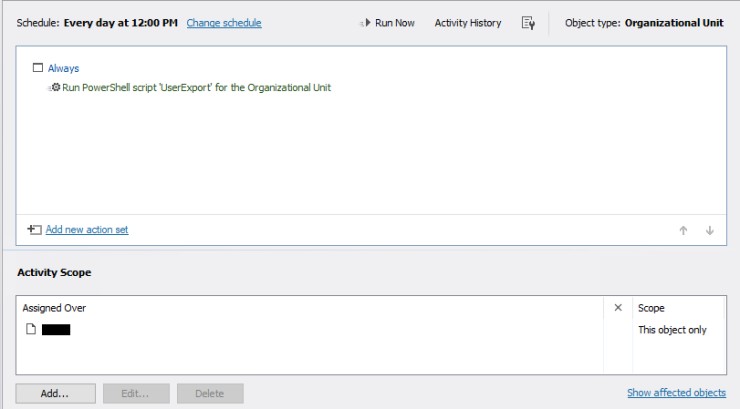Thank you. I had tried that, but I am still getting all results. It isn't critical, getting the entire report running is better. I can filter out data in SQL.

This is running a query directly against AD, if I understand it correctly. One value I had in my other report was the OU the object existed in. When I look in AD the object canonical-name is listed, but that is a constructed value and there isn't a direct AD attribute that is easily accessible. I see Adaxes has a canonical-name that I can include in a standard report. Any suggestions on how to access that?
For example, if my object canonical-name is:
domain.com/OU/SubOU1/SubOU1-2/Jack Brown
The other report gave me the OU of the object:
domain.com/OU/SubOU1/SubOU1-2/J
The closest I can find in AD Attributes is the distinguishedName:
CN=Jack Brown,OU=SbuOU1-2,OU=SubOU,OU=OU,DC=domain,DC=com
Thank you again for all the help.